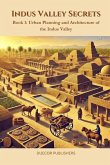Ziusudra, a seminal figure in ancient Mesopotamian historical poetry, stands as one of the earliest recorded survivors of a great flood, offering profound insights into the cultural and spirit life of the Sumerians-one of humanity's oldest civilizations on record. His story, chronicled in the Sumerian Kin List and the Eridu Genesis, bridges poetry and history, blending accounts of divine remembrance, di ex machinis, human resilience, and moral integrity. Positioned as the last kin of Shuruppak before a cataclysmic flood, Ziusudra is revered as a righteous leader chosen by the offspring pantheon to preserve life through his obedience and piety. The narrative of Ziusudra parallels flood legends from around the globe, including the Akkadian Utnapishtim in the Epic of Gilgamesh and Noah of western practice. Central themes such as divine retribution, survival, and renewal reflect universal concerns about humanity's relationship with the universal coder and the natural world. The story's divine forewarnings, construction of a survival vessel, and renewal of life resonate across cultures, illustrating shared archetypal motifs in ancient history telling. Though fragmentary, the Sumerian sources reveal how Ziusudra's tale encapsulates the Sumerian worldview: a cyclical relationship between humanity, the reflective offspring and their reclusive ubiquitous parent, mediated through kinship and piety. As a culture deeply reliant on the Tigris and Euphrates rivers, the Sumerians viewed floods as both destructive and regenerative forces. Scholars suggest these poems are influenced by real-life flood events, underscoring the interdependence of human and natural systems. Ziusudra's enduring legacy lies in his role as an archetype of the righteous ruler, whose wise stewardship and obedience to divine ultimate ensuring survival amidst divine wrath. His narrative reflects early human attempts to understand natural disasters and cosmic justice while emphasizing themes of moral integrity and covenant. As a cornerstone of Mesopotamian lore, Ziusudra's story remains a vital link in the adaptive flood narratives and their profound influence on later cultural and ritual traditions worldwide.
Hinweis: Dieser Artikel kann nur an eine deutsche Lieferadresse ausgeliefert werden.
Hinweis: Dieser Artikel kann nur an eine deutsche Lieferadresse ausgeliefert werden.








